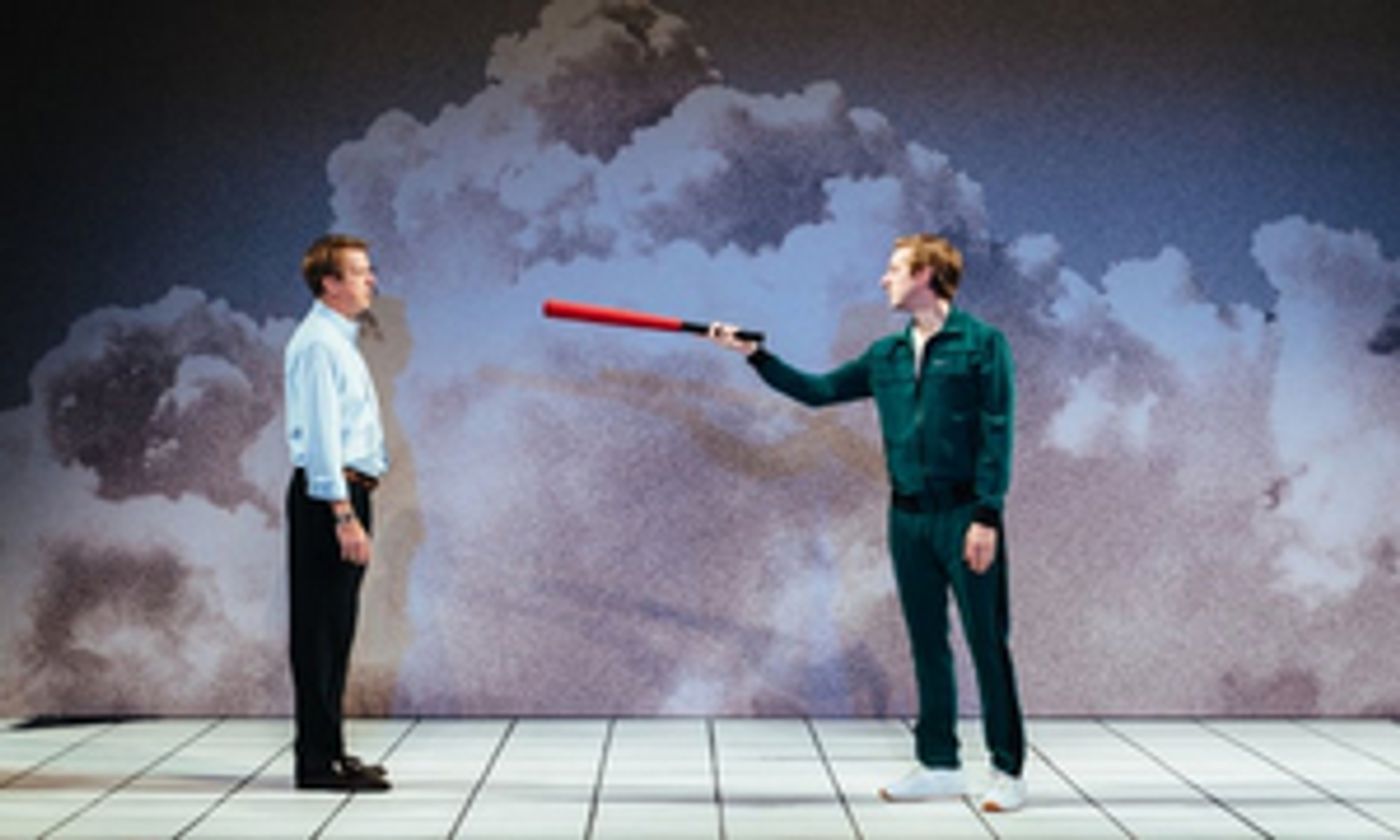Review: RARE EARTH METTLE, Royal Court Theatre
It's a piece about now that speaks of the future. We need to pay attention to what Al Smith is saying, but we deserve a better play to see it.

![]() Rare Earth Mettle doesn't need any more publicity. Headlines started talking about Al Smith's play before its previews were cold in the grave, and reviews have flocked in agreement of its generally disappointing outcome. An exploding controversy, a hasty statement from the top floors of the Royal Court, and even quicker name-change later, the production remains a cutting critique that unfortunately loses itself in its search for style and forceful sarcasm.
Rare Earth Mettle doesn't need any more publicity. Headlines started talking about Al Smith's play before its previews were cold in the grave, and reviews have flocked in agreement of its generally disappointing outcome. An exploding controversy, a hasty statement from the top floors of the Royal Court, and even quicker name-change later, the production remains a cutting critique that unfortunately loses itself in its search for style and forceful sarcasm.
Former Hershel Fink, swiftly renamed Henry Finn, blatantly inspired by Elon Musk, is the Silicon Valley magnate who desperately wants to establish dominance over a Bolivian salt flat because of its lithium-rich underlayer. Curiously, he is the only one who's given a surname in the text. We stick to a first-name basis with all the other characters bar a few honorifics thrown here and there in dialogue. Anna believes she can cure the U.K. of its mental health issues. Kimsa lives on the land the previous two want. Capitalism is dreadful, depression kills too much, and money can buy your soul.
The project is everything that's been said about it and more. It's long, very long. Wordy, but also cerebral and heady. The direction is peculiar, weird dance-y break during the scene changes punch the unsuspecting audience, while many of the actual scenes are long slogs that could only work in a Nolan b-movie - if he ever had one. This show would have received mixed-to-negative reviews even if it didn't start with an explosive argument at its heart. Yes, it drags excessively. Yes, Moi Tran's almost post-modern set design isn't for everyone. Yes, we could do without the wannabe-edgy scene changes. But it offers some great springboards for discussions, and the politics at its core are fascinating if not thoroughly alluring and momentous. Too bad it keeps trying to flirt with its tone, only ending up having a bit of an identity crisis.
This is one of the main issues. There are multiple plays buried into one and none of them explores the potential depths of the characters. The comedic, sardonic, and sarcastic witticisms are great, some even exceptional. Too bad these entertaining quips that are meant to keep the crowd on their toes only highlight how sluggish the rest is. Smith attempts to hold all three main roles with the same importance, but fails to give them the attention they deserve and demand. For starters, it's difficult to say if the Musk-ian character Arthur Darvill portrays is supposed to be satirical or not. Still, the actor thoroughly owns the portrayal of an oblivious and calculating man unironically. He goes from spoilt brat to ruthless billionaire, from arrogant businessman to insecure man-child.
Director Hamish Pirie's double-casting becomes pivotal in the two-facedness of the characters. Jaye Griffiths doubles as Calista, the head of marketing at Finn's company Edison, and the backstabbing politician Nayra who rises to power in Bolivia. Racheal Ofori is equally impressive as disgraced researcher Aisling and Finn's speechwriter Andrea. All the while, Genevieve O'Reilly plays the strategic doctor who hides her vainglory behind the pretense of selflessness, and Carlo Albán is the subject of their contention. He lives on the land they want, caring for his sick tween - the victim of a rare blood cancer left as a legacy by the British Empire and its barbarous mining - and speaks with rather impassive upspeak throughout that only subsides with small bursts of emotion.
While the production tries to bank on its imagery, it's too muddled to stick. A pendulum opens both acts with strong hourglass vibes, but the connection to time and its passing ends there and it's far from being as pressing as it would suggest. Cardboard cutouts of scenic images, old advertising vignettes, and disused machinery populated the white-tiled space carried in and out of the scene by the actors. On a tech level, however, the show is extraordinary for theatre (imagine if it wasn't when the main character is a tech mogul!). Lasers are slowly introduced to reach a final - probably unprecedented in stagecraft history - climax at the very end. But even that wow-factor can't save it.
Besides the earlier name kerfuffle - which could be easily forgiven in the long run if we saw a direct change from it - the playwright needs a bolder pair of scissors and kill his darlings. The material calls to be adjusted in order for the razor-sharp social stance and political critique to shine properly. There's so much food for thought you want to eat the whole apple, never mind biting off a morsel and slapping it on a phone. The rhetoric and cynicism are too good to be left behind in a project that's too confused in its execution to hold its ground. Anna and her motives require superior care, and so do Henry Finn's (admittedly crooked but increasingly rampant) worldview and Kimra's love for his land and submission to money. It's a piece about now that speaks of the future. We need to pay attention to what Smith is saying, but we deserve a better play to see it.
Rare Earth Mettle runs at the Royal Court until 18 December.
Photo credit: Helen Murray
Reader Reviews
Videos

